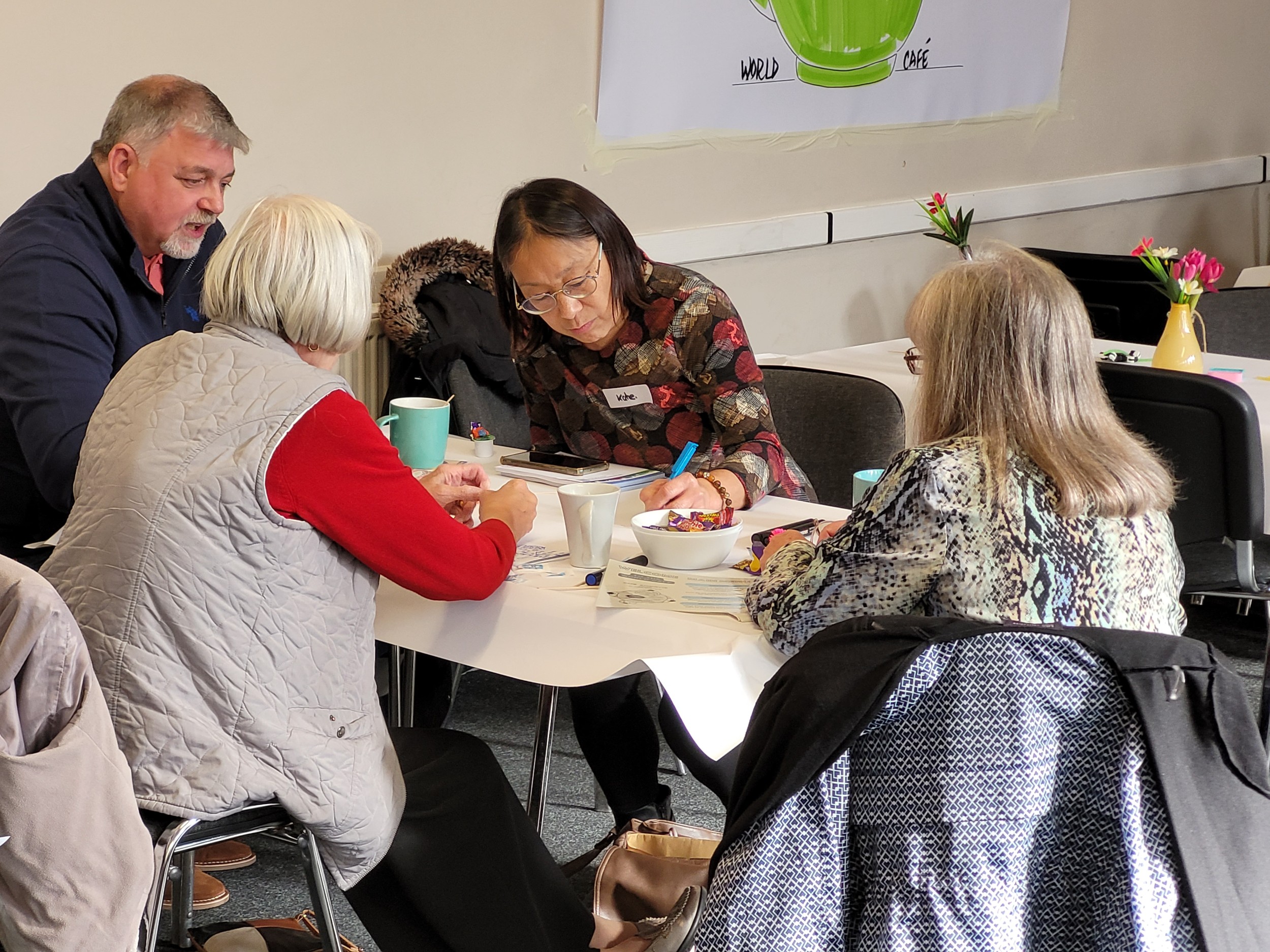A series of virtual workshops have taken place during 2022 to update stakeholders on the development of our Black Country ICS.
Each workshop focused on a theme to ensure stakeholders had a clear understanding of the preparation and progress that had been made locally, as well as the purpose and benefits for integrating health and care across the Black Country.
Workshop 1: What does the Health and Care Bill mean for the Black Country?
The workshop, held on 28 February 2022, focused on the proposed changed to ICS's and what it means for staff and patients within our system. Watch the live recording and download a copy of the presentation and questions and answers.
Workshop 2: Understanding our priorities
The workshop, held on 24 March 2022, focused on understanding our population and their health needs, and the priorities for the system. Watch the live recording and download a copy of the presentation and questions and answers.
Workshop 3: How will the system take action to improve the health and care of local people?
The workshop, held on 26 May 2022, looked at the work of the Integrated Care Board governance and how local people and communities would be heard. Watch the live recording and download a copy of the presentation and questions and answers. You can also watch the ICS movie on YouTube.
Workshop 4: Delivering integrated health and care in each local place
The workshop, held on 06 October 2022, focused on place-based partnerships, how they are formed in the Black Country and what their priorities are. Watch the live recording and download a copy of the presentation and questions and answers.
Workshop 5: NHS providers working together to improve services
The workshop, held on 10 November 2022, focused on what a provider collaborative is, why providers are working together, and what their priorities are. Watch the live recording and download a copy of the presentation and questions and answers.
Workshop 6: Tackling local health inequalities
The workshop, held on 08 December 2022, focused on what is meant by health inequalities, what the local health inequalities are and who they affect most, what we as a system are doing to tackle them and the successes we have we had so far. Watch the live recording and download a copy of the presentation - questions and answers coming soon.
Our working with people and communities approach was developed across two interactive events with over 230 participants.
The first event in December 2021 was held virtually and it set the scene for what an Integrated Care System (ICS) is, what it aims to achieve and asked participants what partnership working meant to them. In small groups, attendees reflected upon 11 principles for how ICSs should work with people and communities. We took each principle and discussed how this should look and feel for us in the Black Country. What emerged from the discussion were our six themes for our 11 Black Country principles which provided us with a platform to begin imagining how we might bring this to life locally. Together with the Black Country Partnership VCSE Alliance we were able to gather the views of people unable to attend the event as well as representatives from underserved communities and ensure their views and experiences were heard.
A core group of participants volunteered to be part of a Citizens Reference Group. The group is made up of individuals from across the Black Country who play an integral part in critiquing the findings from our events and ensure that our analysis reflects what was heard.
The second event took place in March 2022 and was hosted both online and in person. Feedback from the first event in December highlighted that participants felt they spent too much time being ‘talked at’. Learning from the feedback we received, we shaped an agenda which presented participants with more time to share their views and opinions and gave them control over the discussions they chose to feed into. We opted for a ‘camp fire’ format and each of our six Black Country principles had its own facilitated discussion which participants were encouraged to drop in and out of. Participants were invited to share insights themed around “I like, I wish, I wonder”.
Here’s a short video from the second event:
This Healthwatch report outlines the key findings from community engagement activities to gain insight into how people view local healthcare services. The report aims to shape local action to support the delivery of the NHS Long Term Plan.
As part of our vision of ‘doing with’ rather than ‘doing to’ populations, we’re planning a series of community conversations to help us better understand what really matters when it comes to our citizens health and happiness.
Download a summary from the first virtual event held in December 2020, called ‘What if’: Creative summary from the event
In September 2020, Black Country Voices took part in a survey to help us understand more about people’s lifestyles and wider circumstances and how these affect their physical and mental health. This survey also considered the impact of Covid-19 on people’s physical and mental health and asked how they would help their own mental wellbeing and where they would go if they needed support. The analysis of this survey was undertaken by the commissioning manager and results from this survey informed a report to help local organisations work together on improving aspects which affect our health.
Wider determinants of physical and mental health survey - Raw Data
In June 2020, the CCGs sent a COVID-19 Patient Experience Survey to members of the Citizen’s Panel to gather their views and experiences on accessing health services during the pandemic. Most respondents who completed the survey had not had Covid-19 and felt uncertain during the lock-down period. Most respondents (especially those aged 30-39) were positive and impressed about using technology to access health services - which they found easy to use.
However, respondents also raised concerns around the difficulty of engaging with GP practices. Waiting times also emerge as an issue alongside uncertainty about rearranging an appointment to a new location.
Respondents hoped for improvements around the following:
- Delay in getting any type of appointment with a GP
- Difficulty in contacting the GP surgery by phone
- More awareness/advice needed about local health services available
- Limited support for mental health patients.
- More support/checking in on shielding patients required.
- Appropriateness of appointments offered (for example, a patient with a skin concern should be offered a video call rather than a telephone appointment.)
In March 2020, prior to the Covid-19 pandemic, national lockdown and digital services having to be implemented for people to access the health services, the panel was invited to take part in a ‘Digital tools in health and social care’ survey. The aim of the survey was to gather insights on how digital services in the NHS were being or could be used.
All respondents stated they used the Internet and mainly for social media, online shopping and online banking and they found out about digital services via websites, social media, friends and family, online adverts and television. Around half of the respondents said they used the internet to book appointments online and just over half of people said they’d used NHS Digital and online services including to book a GP appointment, visit a NHS website, use 111 online, order a prescription and to access medical records or test results. Around three quarters of people found it “simple” to access NHS services online and around a third described it as “fast.” If people said that they didn’t use NHS online services, it was because they didn’t know they existed, they preferred face-to-face consultations or to use the telephone. Respondents said they’d be encouraged to use NHS digital services if they were easy to access and use, and if they were multi-functional so they could be used in one place.
Around half of the respondents said that they would consider having a telephone appointment, an email communication with their consultant or a live text chat instead of a face-to-face hospital or GP appointments. A few respondents said they would not consider any digital options for GP appointments. The majority of respondents said they would be happy for their medical records to be shared to enable their condition to be reviewed and would allow other NHS organisations or local authorities to access their data.



